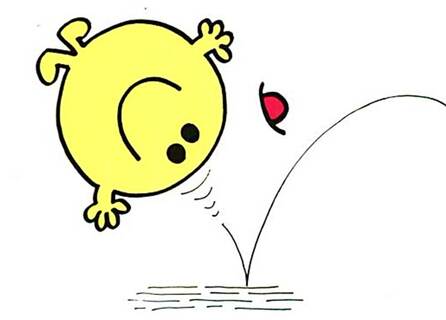|
‘When you wish upon a falling star, your dreams can come true. Unless it’s a meteorite hurtling to the earth which will destroy all life. Then you’re pretty much hosed no matter what you wish for. Unless it’s death by meteor.’ (Despair.com Demotivators) I was surprised to return to my desk and find 6 people waiting in a queue to complain. I’d worked hard on my all-staff presentation and thought I’d handled it well. My task had been to present the results of an annual staff survey: the good, the bad and the ugly. I’d attempted to present a view that, even in those areas where scores were low, such scores represented implicit positive hopes and aspirations. If, for instance, someone had given a low score for quality of management, it was because good management matters to them, even if their desires and expectations were unmet. My agitated colleagues saw it differently. They felt as if I had spun the results, put a positive spin on the ugly, with a result that those staff who had already been angry, frustrated and disappointed now felt even more strongly that their voices were ignored, dismissed and unheard. Still taken aback, I tried to defend myself, arguing that it wasn’t spin but a matter of perspective. They weren’t having it, and they pushed back even harder than before. I was left reeling and confused. In my mind, I had presented the survey results with integrity. I couldn’t understand their hurt and angry responses. This was some years ago and I remember vividly, some days later, driving into work when a penny dropped suddenly. It occurred to me that, when a person describes a glass as half-empty, it’s not simply a matter of perspective but one of sentiment and emotional experience too. By presenting a glass as half-full, I had inadvertently failed to acknowledge and represent an authentic expression of how they were feeling. I returned to my colleagues and shared this somewhat embarrassingly-belated self-revelation – with which they wholeheartedly agreed. They accepted my apology with grace.
25 Comments
No, not platypus – that’s a duck-billed, beaver-tailed, otter-footed, egg-laying aquatic creature native to Australia. ‘Don’t worry – be happy.’ Now, that’s a platitude. It’s a superficial cliché that rolls too easily off the tongue, without thinking, and presents itself as truth. It’s the kind of thing you may well hear from well-meaning, secure, content-with-life people; yet lacks empathy, depth or genuine appreciation of a person, situation or struggle. Now you may already be thinking, ‘I wouldn’t worry about that if I were you.’ Oops. Ding! Platitude. Here’s the thing: I’m not you; I might not worry about it if I were you; you might worry about it too if you were me. Furthermore, I’m a human being, not a robot. I don’t have an on-off switch for worry, or for happiness, although I sometimes wish I did. A platitude creates the sense of saying something useful…without actually saying something useful. So, what’s the antidote? How can I avoid inadvertently slipping into platitude-speak? 1: Listen. Don’t speak. Zip it. Resist the temptation to fill the space, to apply a fix without having heard. 2: Empathise. Feel the feeling, the emotional tone, the tremor, the resonance that lays behind the words. 3: Understand. ‘How are you feeling?’ ‘What do you need?’ Great questions, powerful reach. 4: Offer. Share your wisdom – if called for. Make it real. ‘How to develop a thick skin at work without being obnoxious.’ (Experteer) The article title made me smile. We often think of people with thick skin as tough, resilient and, at times, insensitive to others. It’s as if thick-skinned people are able to handle high levels of relational tension or conflict without feeling hurt or bruised. A similar personal-relational metaphor we sometimes hear is Teflon. If you are unfamiliar with it, Teflon is a material with ‘an extremely low coefficient of friction’ (Urban Dictionary). If something is coated with Teflon, stuff doesn’t stick to it. Tensions and conflict simply slide off, leaving a Teflon person unaffected by relational stress. Whilst thick-skinned or Teflon people may be insensitive to criticism or insults, other people may be overly-sensitive, feeling hurt by relational tension or allowing conflict to penetrate into their soul. A pastoral friend, Nikki Eastwood, uses a blotting paper metaphor to characterise this. If you are unfamiliar with it, blotting paper is an absorbent material, used to soak up excess ink when writing with a traditional ink pen. If we allow ourselves to absorb all the hurt, pain, frustrations etc. of other people, including that projected onto us, we can become debilitated, stressed and exhausted. I worked for most of my life in human rights work and international non-governmental organisations (NGOs). Faced, at times, with unspeakable suffering of others, I became very run down. Eventually, I spoke with an insightful therapist, Shona Adams, who challenged my risk of over-empathising. In my desire to feel and communicate genuine contact with others, I learned that sometimes I stepped so far into others’ shoes that I stepped out of my own. It was as if I was experiencing others’ traumas vicariously, yet without the resilience that people in such situations often develop or discover. So, what can we do to build healthy, constructive relationships that are neither too Teflon to the point of insensitive arrogance on the one hand or too over-empathetic to the point of unhealthy confluence on the other? How can we develop emotional intelligence and resilience? Firstly, listen actively for expressed and unexpressed feelings of others. If you’re unaware or unsure, be curious and inquire. Secondly, establish and maintain a clear psychological boundary and relationship between your experiences and those of others. It may be about you but it’s not only about you. If you would like help with creating and sustaining healthy, inspiring and effective relationships at work, get in touch! [email protected] The best of intentions. How often we do things with good motives and yet, in spite of that, our actions have unintended consequences. It’s often because we haven’t known or understood the wider implications of what, where, when, how or with-for whom we do something. We may, for instance, offer support to a specific person, team or group…only to discover that a different person, team or group perceives that intervention as partisan, favourit-ist or creating unfair advantage.
Here’s an extreme. A friend was delivering aid to a poverty-stricken village in Sudan when he was stopped at gunpoint by militia from a neighbouring village. He was forced to the ground with rifle barrel pressed hard against the back of his head whilst the group relieved him of the vehicle and relief supplies. It turns out the group and its community were envious and resentful that they were being effectively ignored whilst supplies were being provided to a different village. Or here’s a less extreme example. I spoke with an emotional intelligence (EI) specialist this week about using psychological mentoring, coaching and tools to raise awareness and insight, with a risk that some clients may use it in weaponised form to manipulate colleagues or customers. It points to a real need to pay attention to wider systemic, cultural, ethical, political and longer-term considerations when seeking to do the right thing – a principle known as ‘primum non nocere’. If you’re a leader, coach, OD or trainer, here are some questions for critical reflection: When have you acted in good faith to resolve one issue, only to discover that your interventions have inadvertently incentivised, precipitated or exacerbated another? How do you manage the tension of never fully knowing or understanding the potential implications of everything – and yet still taking meaningful stances, decisions and actions? What is your best advice on ‘do no harm’? |
Nick WrightI'm a psychological coach, trainer and OD consultant. Curious to discover how can I help you? Get in touch! Like what you read? Simply enter your email address below to receive regular blog updates!
|






 RSS Feed
RSS Feed